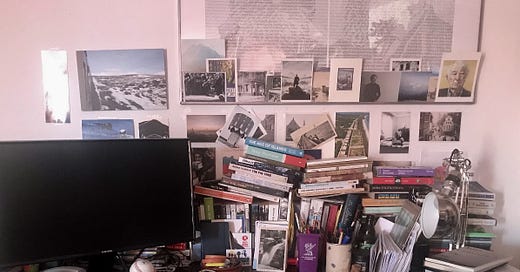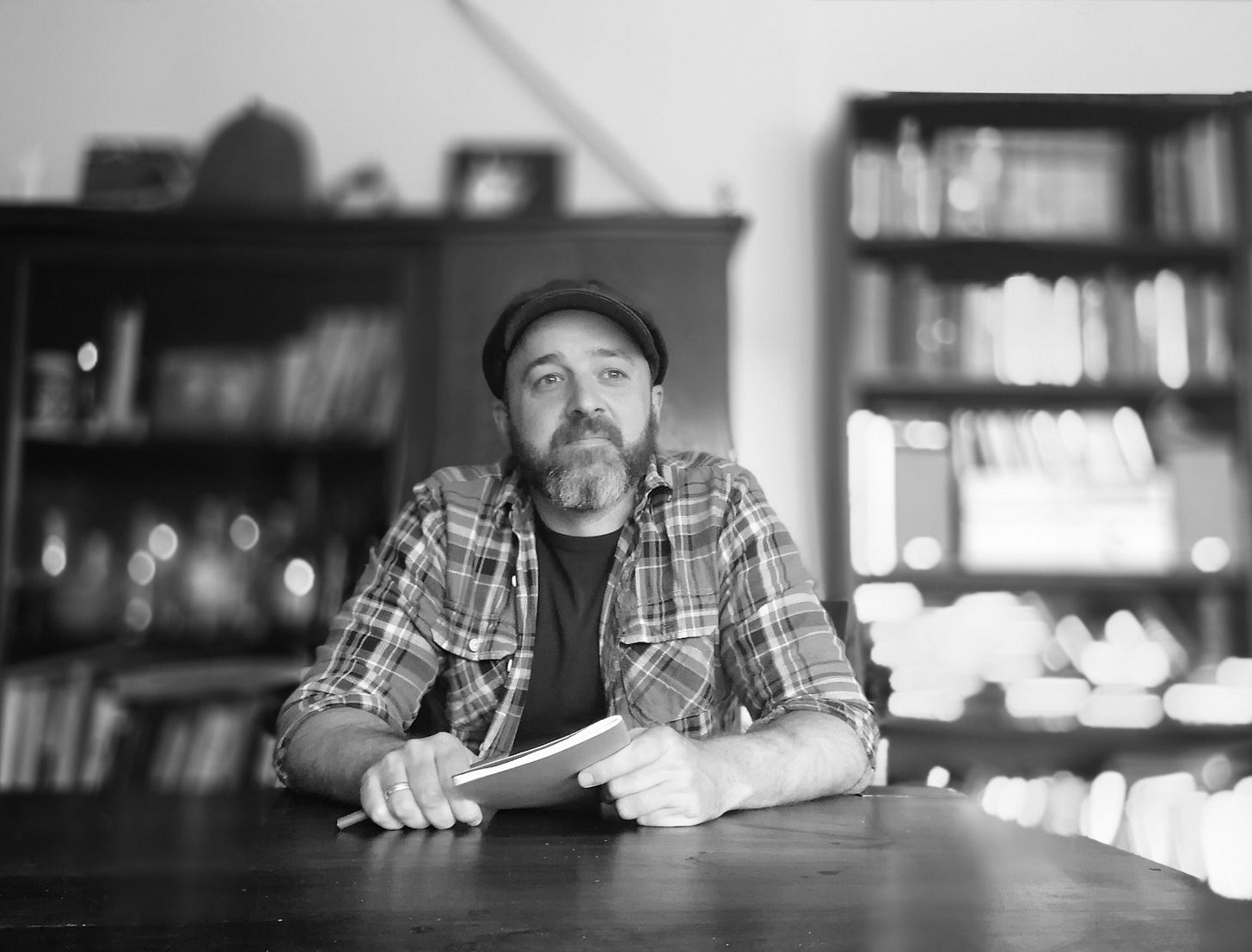#15 Paul Scraton, writer
'Ideally, it would be a long journey, but anything an hour or more usually works.'
Paul Scraton was born in the north of England and has lived in Berlin since 2002. He is the editor-in-chief of Elsewhere: A Journal of Place and the author of a number of books including the recent novella of the forest In the Pines (Influx Press, 2021) and the novel Built on Sand (Influx Press, 2019).
Where do you write?
I usually write in two stages. First I make notes on paper, often a notebook or an A4 pad. I like to do this anywhere but my desk. The kitchen table is a good spot or on the back steps of our little house, with a view of the garden. I really like making notes for future writing projects on the train. Ideally, it would be a long journey, but anything an hour or more usually works. Something about the movement and staring out of the window is an aid to inspiration. When I'm ready to actually start writing then I will write at my desk.
Morning writer or late-night words?
In the morning, after a walk or a run. I do enjoy making notes in the evening, jotting down ideas, after everyone else has gone to bed. That's when I'm at the kitchen table, close to the fridge. It's my favourite stage of the writing process, when everything is possible and nothing has yet been written. And because it's the only part of the process that I can do with wine or beer (see next question).
Coffee, tea or any other drinks?
Coffee, when it comes down to the actual writing.
What's your most tempting distraction?
For the past few months, I've been re-watching The Sopranos, one episode with a sandwich as my lunch break. It's very tempting to keep watching.
Any desk essentials?
Laptop to write on. Paper to scribble on.
What's on the speakers?
When I'm writing, usually nothing, or if so, something without words. When I'm making notes or doing other work, I sometimes put some music on. The CDs on the top of the pile (and therefore the ones I've listened to most recently) are Gillian Welch, Elbow, Spiritualised, Ludivico Einaudi and a German band called Annenmaykantereit.
What are your pre-writing rituals?
I tend to leave the house each morning for a walk or a run. It gives me a bit of a feeling of 'going to work'.
Perfect bookshop to hide on a rainy day?
So many to choose from! In Berlin, it would be one of Curious Fox, St Georges or Dussmann, depending on where in the city I am when it starts to rain. Elsewhere... No Alibis in Belfast, Roe River Books in Dundalk, News from Nowhere in Liverpool, Book Corner in Halifax, Burley Fisher in London, the Globe with its great cafe in Prague, or the Montague Book Mill in Massachusetts – that place is incredible.
The best word in the English language?
Murmuration.
A poem that has changed your life:
I'm not sure I can answer that question with a specific poem. I'm not sure any writing has changed my life, except for the book that made me want to write, which was Another Country by James Baldwin. But there are poets who have made me think about language and the specific way poetry can tell a story. Tony Harrison is one. Kayo Chingonyi another. And over the past few years I have been reading a lot of Heinrich Heine for a book for my German publisher. His book-length Deutschland: Ein Wintermärchen (Germany: A Winter's Tale) is a satirical epic all about the dangers of nationalism, exile and return, identity and belonging – and there are lots in it that have relevance for today, 180-odd years after it was written.





